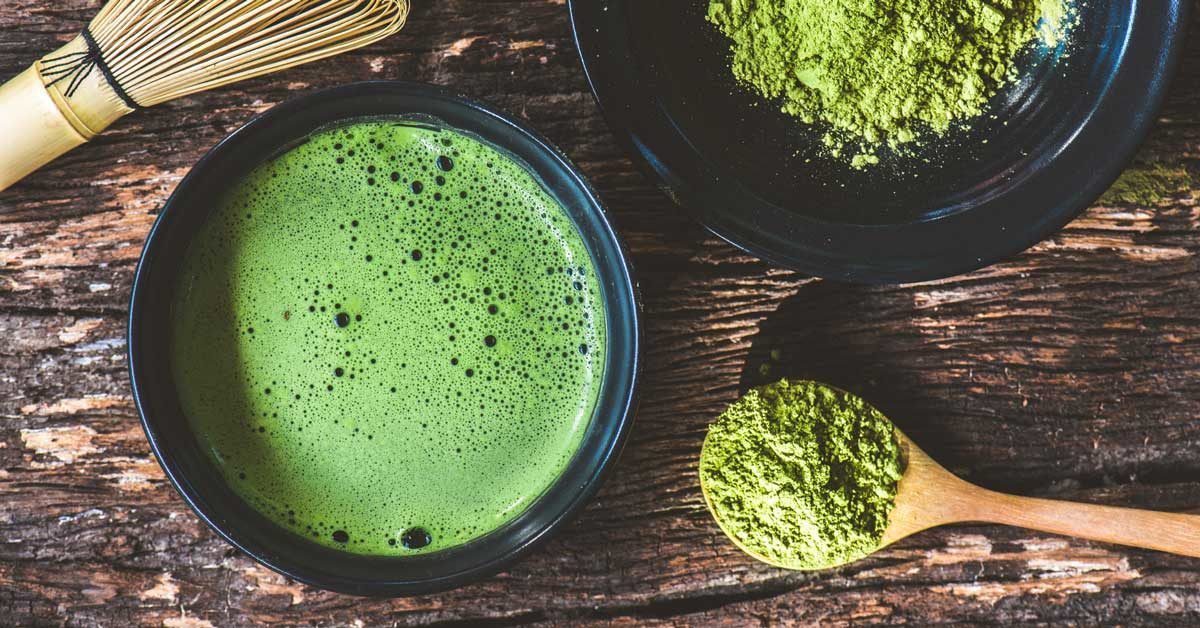Here is the rewritten content in HTML format:
Matcha — Even More Powerful Than Regular Green Tea?
What Is Matcha?
Matcha is a concentrated form of green tea. The leaves are ground into a powder, allowing you to ingest the entire leaf, which may provide more health benefits than regular tea. However, drink it in moderation.
Growing and Preparation
Matcha is grown and prepared differently than regular green tea. The tea bushes are shielded from sunlight for 20–30 days before harvest, which triggers an increase in chlorophyll levels, turning the leaves a darker shade of green and increasing the production of amino acids. After harvesting, the stems and veins are removed from the leaves, and they are then stone-ground into a fine, bright green powder known as matcha.
Benefits of Matcha
Matcha is loaded with antioxidants and offers numerous health benefits, potentially reducing heart disease risk while aiding weight loss, relaxation, and alertness.
Packed with Antioxidants
Matcha contains a unique amino acid called L-theanine, which may increase alpha waves in your brain, linked to mental relaxation and may help counteract stress signals. L-theanine also modifies the effects of caffeine in your body, increasing alertness without causing the drowsiness that often follows coffee consumption.
May Reduce Your Risk of Heart Disease
Drinking green tea, including matcha, may help improve several risk factors for heart disease, including total cholesterol, LDL (bad) cholesterol, triglyceride, and blood sugar levels. Studies show that people who drink green tea have up to a 31% lower risk of heart disease.
May Boost Relaxation and Alertness
L-theanine can also increase the number of feel-good chemicals in your brain, leading to improved mood, memory, and concentration. L-theanine has also been shown to increase glutathione, an antioxidant that counteracts free radicals and protects neurons and other cells.
Contaminants
Matcha leaves may harbor contaminants, including heavy metals, pesticides, and fluoride, from the soil in which the plant grows. Using organic matcha may reduce your risk of exposure to pesticides, but even organic leaves may still contain substances from the soil that are harmful when ingested in large amounts.
Liver and Kidney Toxicity
Matcha contains about three times more antioxidants than high-quality regular green tea. While individual tolerance varies, consuming high levels of the plant compounds found in matcha may cause nausea and symptoms of liver or kidney toxicity.
Conclusion
Matcha is a powerful and concentrated form of green tea that may offer even more benefits than regular green tea. However, it is essential to consume it in moderation and be aware of potential contaminants and toxicity.
FAQs
Q: What is matcha?
A: Matcha is a concentrated form of green tea made from ground leaves.
Q: How is matcha grown and prepared?
A: Matcha is grown in the shade, which increases chlorophyll levels, and then stone-ground into a fine powder.
Q: What are the benefits of matcha?
A: Matcha may reduce heart disease risk, aid weight loss, promote relaxation, and increase alertness.
Q: Is matcha safe to consume?
A: Matcha is generally safe to consume, but it is essential to consume it in moderation and be aware of potential contaminants and toxicity.
Q: Can I consume more than 2 cups of matcha per day?
A: No, it is not recommended to consume more than 2 cups of matcha per day due to potential toxicity and contaminants.
Recommended Products:
-

Arms Race Nutrition NITE NITE Recovery and Sleep Support 7.4 oz (20 Servings) (Lemon Chamomile)
$49.96 Buy Now -

Amazing Formulas Evening Primrose Oil 1300mg, 10% GLA, Softgels Supplement | Hexane Free Cold Pressed Oil | Non-GMO | Gluten Free (250 Count)
$34.99 Buy Now -

Nano Silymarin Supplements- Milk Thistle Seeds Extract for Liver, Silymarin Extract for Absorption & Bioavailability, Non-GMO, 120 Veggie Capsules, 250 mg
$54.99 Buy Now



